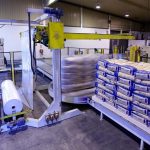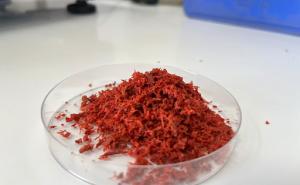
One by one, I’d take away everything that requires farm labor. When they see they’d be left with nothing but an empty plate, maybe then they and their colleagues would take the shortage of farmworkers more seriously.
I’m a seventh-generation family dairy farmer. Farmers in Ohio have been asking Congress to pass legislation to help fix the agricultural farm workforce shortage for more than 30 years. Now we are in a crisis and families are feeling the pain. Without workers, farmers produce less, supply goes down, and prices go up. For example, based on September projections, a turkey was expected to cost 112% more this Thanksgiving than last year.
Overall, food prices, seasonally unadjusted, are 10% higher than 2021. Without action, inflation will only continue.
The House of Representatives heard our call. In March 2021, on a bipartisan basis, the House passed the Farm Workforce Modernization Act.
This bill would allow farmworkers to work within the parameters of the law and keep applying their talents and skills in the agricultural sector. It would also make improvements to the H-2A guest worker program, which hasn’t been reformed since 1986.
Under the current law, the program applies only to seasonal workers. That doesn’t help dairy farmers such as myself or other farmers who raise livestock. My cows need to be milked three times a day, 365 days a year. The cows don’t know when it’s Christmas Day or your wedding anniversary.
The Farm Workforce Modernization Act would allow farmers to hire year-round guest workers, which would be a game changer for us.
I’d love to hire American workers, but most aren’t interested in working long hours in the elements and milking cows. When COVID-19 hit the area, we thought, since other businesses were closing, we’d get lots of local people applying for jobs. But nobody applied.
The data show that the farm workforce crisis is a problem with a solution. A study by Texas A&M showed that the use of more foreign workers is associated with lower inflation and reduced food prices to consumers, including for milk, eggs, meat, fruits, and vegetables.
Another study by the Cato Institute showed that the House version of the FWMA would reduce labor costs for farms who use H-2A guest workers by almost $2.8 billion over two years, with $39.5 million savings realized in Ohio.
It’s not just costs that folks should be worried about. The agriculture labor shortage is also an issue of national security. Next year, for the first time ever, the United States. will import more food than it exports, according to U.S. Department of Agriculture projections.
We should not be relying on other countries to feed ourselves. We should be growing our own food on our own soil.

Kathy Davis is one of the owner-operators of Ayers Farms in Perrysville, Ashland County. (Photo courtesy of Dairy Farmers of America)
The House-passed legislation was a good start. Now in the Senate, Sens. Mike Crapo, Republican of Idaho, and Mike Bennet, Democrat of Colorado, are leading negotiations and moving the process forward. If our Ohio senators are serious about lowering food prices and sustaining our state’s economy, they will actively work to build bipartisan support and get this legislation through the Senate before the end of the year.
Because of Senate inaction, we are seeing high food prices and a threat to our nation’s food security. We’re seeing farmers leaving land dormant or letting crops rot in the field without workers to harvest them. Many are selling their farms and leaving agriculture altogether. Sens. Brown and Portman need to support passage of a farm workforce solution in the Senate without delay. Time is not on our side. We need action now.























